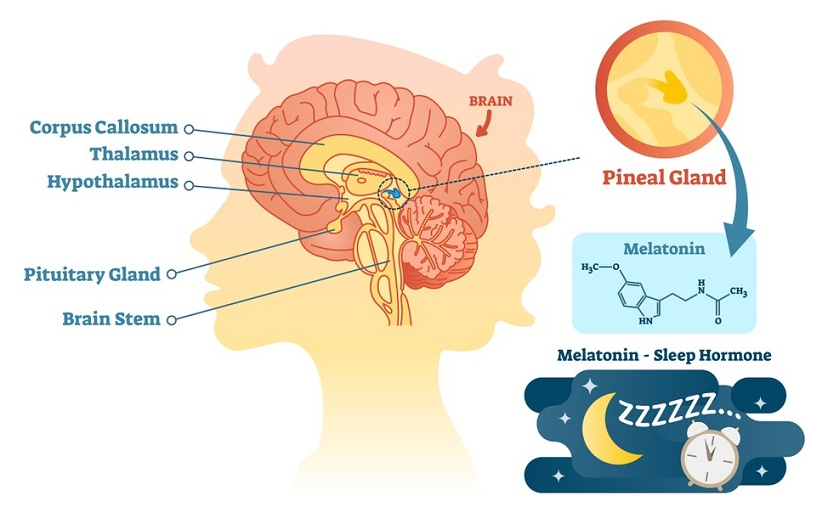The pineal gland is also known as the epiphysis cerebri, pineal organ, pineal body, or conarium. It is found in the body of vertebrates and is an important source of melatonin that is the hormone, derived from the tryptophan and has the central role for the regulation of circadian rhythms. However, all the functions of the pineal gland are not known and still, the purpose of the pineal gland is a bit of mystery.

Anatomy of Pineal Gland
This gland is developed from the roof of the diencephalon, and it is located behind the third cerebral ventricle in the midline of the brain. The name pineal is derived from its shape that has a resemblance to the pinecone. In adult human beings, it weighs about 0.1 grams. In the X-ray, the pineal gland often appears as calcified that is usually due to the presence of the calcium, phosphorus, and fluoride deposits which are building up with the age.
Melatonin and the Pineal Gland
Only one hormone melatonin is secreted by the pineal gland. The secretion of this hormone is dictated by the light. Primarily, it has two main functions in the humans that are to control the biological or circadian rhythms or the reproductive hormones. The circadian rhythm is the biological cycle for the 24 hours and is characterized by the wake and sleep patterns. The exposure to the light stops the secretion of melatonin and in this way, it plays the role of controlling the circadian rhythms. The melatonin also affects cardiovascular health and the sufficient level of melatonin may have a positive effect on the blood pressure and heart.
Pineal Gland and Female Hormones
The exposure to the light is related to the melatonin level and has a direct influence on the menstrual cycle of women. A decrease in the amount of melatonin causes the development of irregular menstrual cycles. The size of the pineal gland is also linked to various mood disorders. The lower volume of the pineal gland may increase the risk of getting mood disorders such as schizophrenia.
Disorders Associated with Pineal Glands
Any impairment in the pineal gland causes the hormonal imbalance which can negatively impact the various body systems such as disruption of sleep patterns, fertility, and the menstrual cycle. Due to its location, it heavily interacts with body fluids and blood. So, the development of the pineal gland tumor exerts negative influences on the body and the symptoms may include nausea, headache, disruption of memory, damage to the vision and other senses, and seizures.